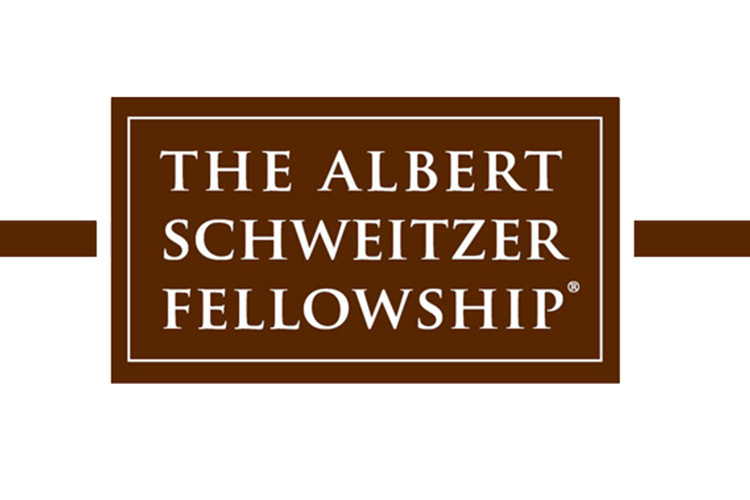Published on January 28, 2020 by Sara Roman

Over the next 15 months, Babin will learn to effectively address the social factors that impact health and develop lifelong leadership skills. In doing so, she and the other Fellows will follow the example set by famed physician-humanitarian Albert Schweitzer, for whom the Fellowship is named.
“These 17 students have joined us at a critical juncture in our organization’s history,” said Kristin Boggs, executive director of the Albert Schweitzer Fellowship of Alabama. “Thanks to the support from local philanthropic partners, we have added three months to a previously year-long experience. We are impressed by the willingness of these students to devote more time to using data and community voice to accurately understand what organizations and citizens value and desire to see improved. Furthermore, we are excited to see how a broader diversity of disciplinary perspectives this year will enhance their appreciation for interdisciplinary teamwork. These students rose to the top from our most selective application and interview process ever.”
Schweitzer Fellows develop and implement service projects that address the root causes of health disparities in under-resourced communities, while also fulfilling their academic responsibilities. Each project is implemented in collaboration with a community-based health and/or social service organization. The exact projects of the 2020 Fellows will be determined through a three-month exploration of needs, community assets, and evidence-based models for interventions.
ASF of Alabama will announce the specific projects and community partners who will collaborate with the Fellows in April 2020.
Schweitzer Fellowships have an intensive leadership component so that Fellows can go on to inspire others to improve the health of those who experience barriers to care. Fellows work under the close guidance of community and academic mentors during their fellowship year.
It is anticipated that the 17 Alabama Fellows will be joined by approximately 200 other 2020-21 Schweitzer Fellows working at program sites around the United States. Upon completion of their Fellowship year, the 2020-21 Alabama Schweitzer Fellows will become Schweitzer Fellows for Life and join a vibrant network of more than 3,500 Schweitzer alumni who are skilled in, and committed to, addressing the health needs of underserved people.
Located in the Homewood suburb of Birmingham, Alabama, Samford is a leading Christian university offering undergraduate programs grounded in the liberal arts with an array of nationally recognized graduate and professional schools. Founded in 1841, Samford enrolls 6,324 students from 44 states, Puerto Rico and 16 countries in its 10 academic schools: arts, arts and sciences, business, divinity, education, health professions, law, nursing, pharmacy and public health. Samford is widely recognized as having one of the most beautiful campuses in America, featuring rolling hills, meticulously maintained grounds and Georgian-Colonial architecture. Samford fields 17 athletic teams that compete in the tradition-rich Southern Conference and boasts one of the highest scores in the nation for its 97% Graduation Success Rate among all NCAA Division I schools.
